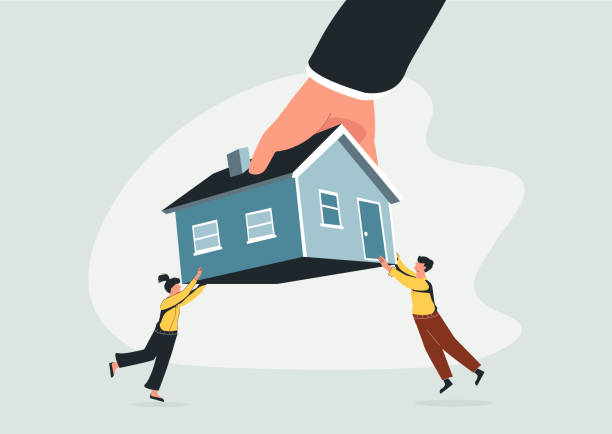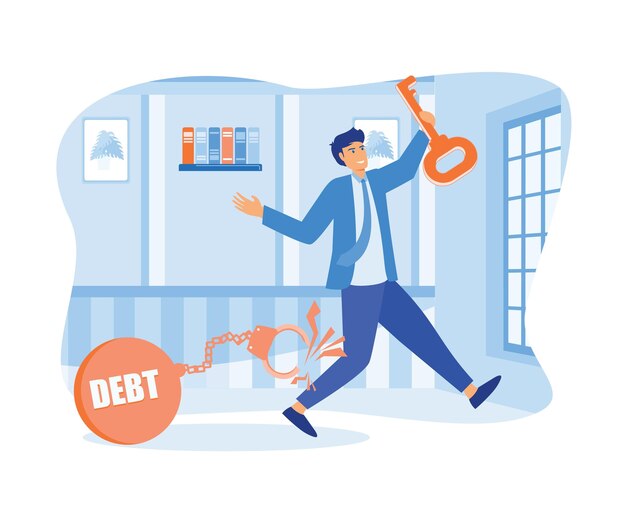Homeownership in Australia is a dream for many. We might often be carried away with all the excitement of buying a home. However, as with any significant financial commitment, challenges can arise. Mortgage stress, though often a daunting topic, can be an opportunity to take control and make informed decisions that lead to long-term financial well-being.
Recent data indicates that a significant proportion of Australian homeowners are experiencing difficulty meeting their mortgage repayments, with many dedicating a substantial portion of their income to housing costs.
A lot of times one does not understand when they are going through a mortgage stress. To give it a perspective, you are facing a mortgage stress if you are living paycheck to paycheck. If you are cutting down on your everyday expenses to make your repayments or debts, then you are undergoing a mortgage stress. Generally, a household that pays back their mortgage with more than 30% of their gross (pre-tax) income is said to be experiencing mortgage stress.
What might be the reasons for mortgage stress?
The rising interest rates to combat inflation has led to higher monthly mortgage repayments for variable-rate loan holders. Reports state that, since the Reserve Bank of Australia (RBA) commenced its interest rate tightening cycle, the number of mortgage holders ‘At Risk’ of mortgage stress has increased by nearly 800,000 in the past 2 years.
The stagnant wages despite the increasing cost of living, wage growth has remained relatively flat. Many households are struggling to keep up with their financial obligations. Although Australia’s unemployment rate remains low at 4.1%, if a household loses their job, they will struggle to make repayments.
Skyrocketing property prices in many cities, particularly Sydney and Melbourne has resulted in larger mortgage loans and higher debt levels. Sydney and Melbourne have seen significant price growth, with median house prices over $1 million. Brisbane and Perth are catching up with the emerging market prices and are no lesser than Sydney or Melbourne.
The surge in cost of living has made everyday expenses difficult. The utility bills, groceries, and other essential expenses have risen, putting additional pressure on household budgets.
The impact caused by a mortgage stress can be larger than you expect. This stress can lead to significant emotional and financial strain, impacting overall well-being and stability. Let’s have a look at the economic and social impact of a mortgage stress.
The Monetary Impact
- Reduced Consumer Spending
Mortgage stress often leads to cutting down on non-essential or luxurious goods or things. This might feel like a small sacrifice for you to have a dream home, but the larger impact is often overlooked. A negative impact is caused affecting local businesses and the economy as a whole.
- Loan Failures and Property Repossession
Prolonged mortgage stress is a is a situation you want to avoid. It leads to an increase in loan defaults as homeowners fail to keep up with repayments. Higher foreclosure rates can inundate the real estate market with distressed properties, reducing property values and worsening financial instability. This scenario places additional strain on financial institutions, potentially leading to tighter lending conditions.
- Impact on the Real Estate Market
A plethora of problems arises from foreclosures and distressed sales. It depresses property values, impacting the wealth of homeowners and investors. It further leads to less investments and reduced new home construction.
According to recent data from the Australian Bureau of Statistics (ABS) and various financial analysts, around 40% of Australian households are experiencing some form of mortgage stress. This stress is nothing but spending more than 30% of household income on mortgage repayments.
The Social Impact
- Reduced Quality of Life
Experiencing a mortgage stress often leads to making significant lifestyle adjustments, such as cutting back on leisure activities, vacations, and even essential expenditures like healthcare and education. This financial strain can also lead to social isolation and the need to withdraw from social activities due to financial constraints.
- Unstable Housing Conditions
Prolonged mortgage stress can have severe consequences, including the risk of foreclosure and the loss of the family home, ultimately leading to housing insecurity or homelessness. Families who lose their homes often move into the rental market, increasing demand and driving up rental prices. This added pressure can worsen housing affordability for others, leading to more housing instability and financial stress.
- Stress and Strain
The pressure of meeting mortgage repayments can lead to significant stress and anxiety. Additionally, mortgage stress can place strain on family relationships. The overall quality of life can deteriorate while grappling with these financial and emotional burdens, impacting one’s well-being.
There is always a way out. Addressing mortgage stress often requires a strategic approach to budgeting, financial planning, and seeking professional advice. Let’s quickly dive into a few pointers you might be missing out.
- Refinance your Loan
Compare interest rates and terms, and consider switching to a fixed-rate mortgage to stabilize payments.
- Efficient Budgetting
Track income and expenses to identify savings opportunities and prioritize mortgage payments within your budget. If it still falls short, explore additional income sources such as part-time work, freelance gigs, or renting out a room or property if feasible.
- Seek Financial Advice
Consult a financial advisor for personalized strategies. Communicate with lenders to discuss payment options, hardship arrangements, or modifications like extending the loan term or temporarily reducing payments. Explore government programs, grants for mortgage relief, and check eligibility for financial assistance programs such as Centrelink.
- Cut Down on Expenses
Cut discretionary spending on non-essentials and implement cost-saving measures. At present, youngsters need to educate themselves mainly on budgeting and financing. A survey by CoreLogic in 2023 revealed that younger homeowners, particularly those aged 25-34, are disproportionately affected by mortgage stress compared to older age groups.
- Have a Backup
Building an emergency fund is crucial for covering unexpected expenses. According to a 2023 report by the Australian Housing and Urban Research Institute (AHURI), around 1 in 5 Australian homeowners reported experiencing significant mortgage stress.
Start small and gradually increase your savings buffer to ensure you’re prepared for any financial surprises.
- Stay Updated
Financial literacy and staying updated on current market trends are essential for making informed and effective financial decisions. This proactive approach not only enhances financial stability but also enables individuals to adapt to market fluctuations, seize potential opportunities, and avoid common pitfalls. Ultimately, a commitment to financial education and market awareness fosters long-term financial health and resilience.
Mortgage stress can present significant challenges, taking proactive steps and staying positive can significantly ease its effects. Embracing financial literacy, exploring additional income sources, and utilizing available support systems can help you navigate through difficult times.
With the right guidance and tools, you can transform mortgage stress into a chance for personal growth and financial strength, paving the way for a more stable and secure future.
FAQs
1. What type of mortgage should I choose?
Fixed-Rate Mortgage: Provides stable repayments, protecting against interest rate hikes.
Offset Account: Reduces interest by offsetting loan balance with savings.
2. Which Australian mortgages are the most risky?
Mortgages with variable interest rates, high loan-to-value ratios (LVR), and interest-only repayments are generally considered the most risky. Variable rates can lead to higher payments if interest rates rise, high LVRs increase the risk of negative equity, and interest-only loans might result in a larger principal balance at the end of the term.
3. Can refinancing my mortgage help reduce stress?
Yes, refinancing can potentially lower your interest rate and monthly repayments, making your mortgage more manageable.
4. Are there government assistance programs for mortgage stress?
Yes, various government programs offer financial assistance and support to homeowners experiencing mortgage stress. Check with local and federal government resources for eligibility and application details.
5. Can consolidating debt help with mortgage stress?
Yes, consolidating high-interest debts into a lower-interest loan can reduce overall interest costs and simplify financial management, easing mortgage stress.
6. What are the long-term impacts of mortgage stress on my financial health?
Prolonged mortgage stress can lead to increased debt, potential foreclosure, and damage to your credit score, making it harder to secure loans in the future.







